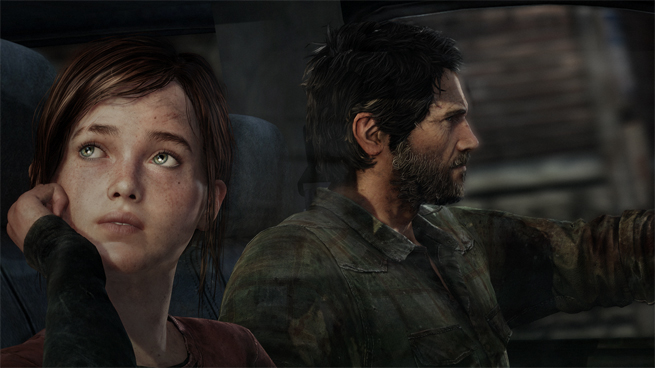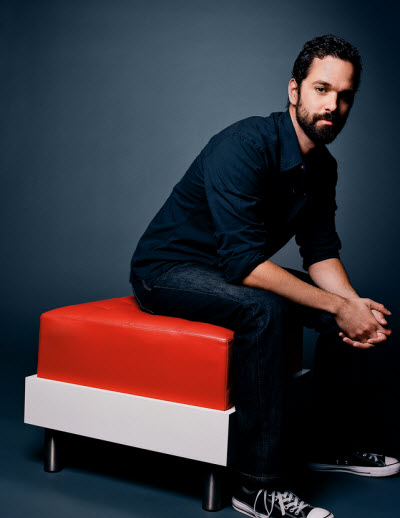GamesBeat: When I wrote my own story about your game, I used a line from Schindler’s List: “Whoever saves one life saves the world entire.” I always thought that was a great quote. The game and the ending made me think about it. The funny thing about it is that’s not true in this case. You save a life and doom the whole world.
Druckmann: Well, you’re a parent. We’ve talked to people who’ve finished the game. A lot of articles refer to Joel as a monster at the end – “What does it feel like to play a monster?” Just as I don’t feel that Marlene is a monster for wanting to kill a kid to save mankind, I don’t view Joel as a monster either. How can you ask him to do that?
You can argue that maybe he goes too far. There’s a conversation to be had. But for him, well, you can survive. He’s survived for a year in this world. What is it worth saving mankind if he has to go through hell again?
 GamesBeat: One interesting thing to me is that the other game that’s really resonated this year is BioShock Infinite. The ending of that game is something that people have talked about a lot, and it’s very similar with The Last of Us. The thing that’s gone viral, that everyone’s talking about, is the ending.
GamesBeat: One interesting thing to me is that the other game that’s really resonated this year is BioShock Infinite. The ending of that game is something that people have talked about a lot, and it’s very similar with The Last of Us. The thing that’s gone viral, that everyone’s talking about, is the ending.
Druckmann: That’s something that worked in our favor. We had focus tests at the office, where we brought people in to play the game, and for a long time, the ending tested badly. People felt it was unsatisfying. They wanted more of a climactic battle. They said that one of the characters should die, or maybe they both should die. Someone even suggested that Ellie shoot Joel at the end. But for us, we had this idea for the ending and we stuck to it. It felt like the most honest thing we could do for the characters.
Straley: With the example of BioShock, as well as our game—I played through BioShock, and there’s something to be said for not necessarily understanding exactly what’s going on. That helped me talk to people about it. There’s something about subtlety and ambiguity and subtext. When you see conversations between people out there and this stuff resonating with them, it gives us hope for the industry as a whole. Maybe people are maturing. We’re starting to look at them as an audience in the way that good filmmakers do, using subtlety and subtext in their filmmaking. It’s more interesting to let the viewer or the player figure things out for themselves.
We’re all grown up now. I’ve seen enough good stories in books and film. Now I want to see them in video games. When they come, that subtlety really sells. Now I can get in an interesting conversation with Neil about what this means over lunch or something. We find that more interesting, not only as developers but just as people who digest media.
Druckmann: It’s super intriguing to us, seeing all these articles that talk about whether Joel is a hero or a villain. Why does he have to be one or the other? Couldn’t he just be a complex person who’s made good and bad decisions? It’s open to interpretation.
Straley: It’s interesting, because it butts up against everything that you know about video games – the hero complex, the power fantasy, saving the world. If you just make deep characters that have real human drama, at this point in our lives and in the medium, it’s much more interesting to discover what we can do with story and gameplay and paralleling those two. I think there’s still so much more potential in this medium. We’re only scratching the surface.
GamesBeat: The interesting part about the movie side — toward the end Joel is in the hospital, and he’s trying to rescue Ellie. You have no choice left. You have to follow through, and you have to shoot these doctors. Can you talk about that? That part disturbed me. In effect, at that point, I didn’t have a choice in the game?
Druckmann: Just out of curiosity, what did you do when you got there?
GamesBeat: I just stood there for a while, waiting for Joel and Ellie to escape. Then I realized, “OK, it looks like I have to shoot these people in order to get Ellie out of there.” So I did. One of the workers was just sitting on the ground. I tried to shoot him in the leg, but he basically keeled over and died.
Druckmann: The one you have to shoot is the surgeon, the main guy with the scalpel. The other two, that’s just you being dark. [laughs] You don’t have to kill them. You could have just picked up Ellie. But that was intentional. That whole sequence used to be a cutscene, where Joel walks into the operating room and kills the doctor. But there was something, again, about using interactivity to say, “You are going to role-play as Joel. We’re going to make you feel that choice.”
Whether you agree with it or not, Joel is on this rampage. It’s ultimately his decision, but if you’re along with the story, you’re going to have to commit these acts. It rubbed some people the wrong way, that they didn’t have a choice, because – especially at the end of games – they’re so used to having this moral choice. But it didn’t feel honest to the character. It felt to us like if you were along for the ride, you were going to have a bitter experience, because you’re doing these acts yourself. You can feel horrible about them or question them or debate them, but you have to commit these acts if you want the story to progress.
Straley: People debate a couple of things. They say, “It’s an interactive medium. I want that choice at the end. I want engagement there.” First, it’s not a game built on that. The story hasn’t done that up to that point. It would feel very awkward to just throw that choice in at the end. Second, when we asked people, “Okay, if we did give you that choice, what choice would you make?” 90 percent of them said, “I’d save Ellie, of course.”
Some interesting articles have come out recently about empathy games, and then some about the end of our game. It’s the contrast of the conflicts between what the player is thinking versus what Joel is thinking that allows you to explore what we’re doing with that character. It’s because you’re not him that you get to see him.
I find that interesting as a device. It’s not about interactivity or non-interactivity. It’s being able to explore something that you are not. It’s Joel who’s going through that, not you, but you get to feel some of what it’s like to be Joel and what lengths Joel is willing to go to.
VentureBeat's mission is to be a digital town square for technical decision-makers to gain knowledge about transformative enterprise technology and transact. Learn More


